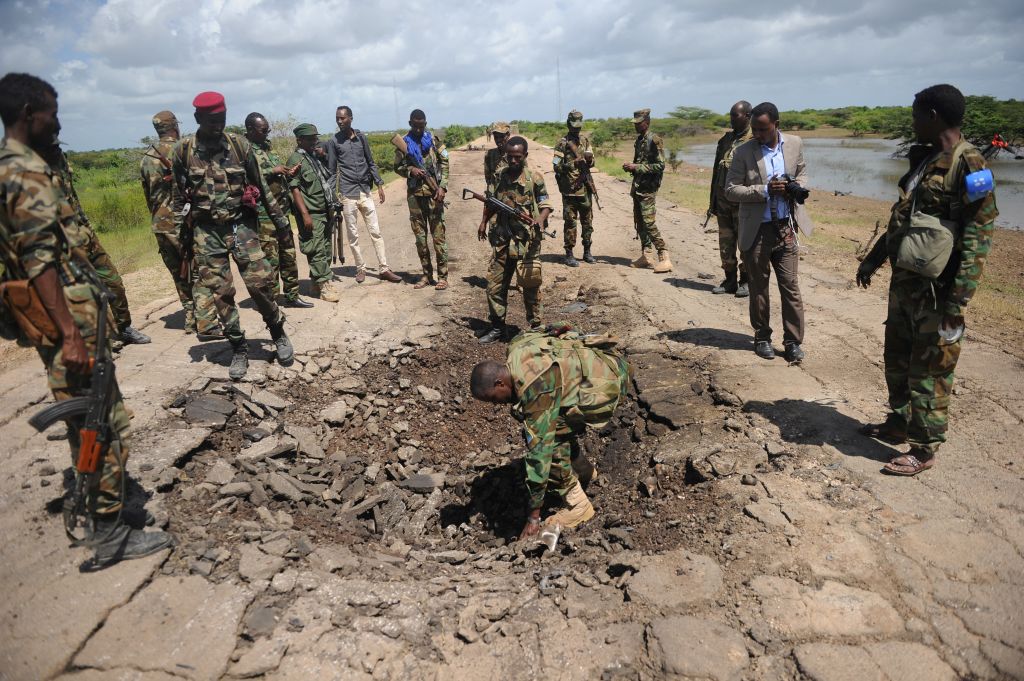ADF STAFF
Although military and intelligence operations have weakened al-Qaida in recent years, the extremist group is trying to make a comeback, and its focus is on Africa.
A recent report by Modern Diplomacy noted that the “primary focus” of al-Qaida’s growth and development seems to be Africa. The Washington Post also reported that “the central zone of Islamist-related violence has shifted away from the Middle East and South Asia” and now focuses on Africa.
Sahel expert Andrew Lebovich said that in recent years, al-Qaida has been particularly involved in the Sahel and the Lake Chad Basin.
“Even where some regional interventions have been moderately more successful, these groups continue to operate and not only retain a strong presence, but in some cases expand their operations across quite vast spaces,” Lebovich told the Post.
The extremist group also is trying to improve its image.
Recent al-Qaida propaganda “seems more focused on portraying the organization as a force that is fighting for the oppressed and against oppressive governments,” Modern Diplomacy reported. “It is possible that this rebranding effort is an attempt to attract new members and supporters.”
One of the key areas for al-Qaida expansion is northern Mali, which has had a security vacuum since France withdrew its forces in 2022. Al-Qaida’s Sahel branch, Jama’at Nusrat al-Islam wal-Muslimin (JNIM), has since begun establishing itself as a security partner for former rebel groups in a region where the Malian government has long been ineffective.
Northern Mali is being squeezed between the extremists and Russian Wagner Group mercenaries who are working for the Malian government. Mali can expect little help from the United Nations Multidimensional Integrated Stabilization Mission in Mali because it was “not designed to serve an active counterterrorism role,” according to a report by Africa File.
“This trend will likely lead to JNIM establishing de facto control over northern Mali, a takeover that will feed long-term instability in Mali and its neighbors and increase the resources and opportunities available to al Qaeda in Africa,” reported the Africa File.
The extremist group has made its presence felt across the entire continent, from Somalia in the east to Mali in the west:
In Burkina Faso, extremists, most of them al-Qaida followers, carried out 1,470 attacks in 2022, a 26% increase from 2021. The Armed Conflict Location & Event Data Project reported that the extremists killed 3,600 people.
In Ghana, al-Qaida militants are exploiting a heated 65-year dispute between two communities to establish a beachhead in the country, which is regarded as a regional powerhouse. Militants also are attacking Ghana’s coastal neighbors, Benin, Côte d’Ivoire and Togo.
“Expansion into Ghana could ultimately give al Qaeda access to revenue from trade through Atlantic ports,” The Wall Street Journal reported. “Ghana is a major producer of cocoa and gold. In areas [where] the militants control in West Africa, they forcibly extract taxes from artisanal gold mines, which are common in northern Ghana, according to U.S. military officers in Africa.”
In Somalia, extremists linked to al-Qaida attacked a military base housing Ugandan forces of the African Union Transition Mission in Somalia. The extremists claimed they killed 137 Soldiers using suicide bombers.
U.N. Assistant Secretary-General for Africa Martha Pobee told a Security Council meeting in May that Burkina Faso and Niger have strengthened military cooperation with Mali to counter a surge in al-Qaida and ISIS attacks, but “despite these efforts, insecurity in the tri-border area continues to grow,” she said, as reported by Al-Jazeera.
Modern Diplomacy contends that although al-Qaida is not as powerful as it once was, its increasing presence in Africa should concern everyone.
“While the world’s superpowers may be busy dealing with other geopolitical challenges, Al-Qaeda’s activities should not be ignored,” Modern Diplomacy reported. “The organization has a long history of perpetrating violent attacks on civilians, and its recent resurgence in Africa could destabilize the region further. Al-Qaeda’s growth could not only put African countries at risk but also pose a threat to global security.”

